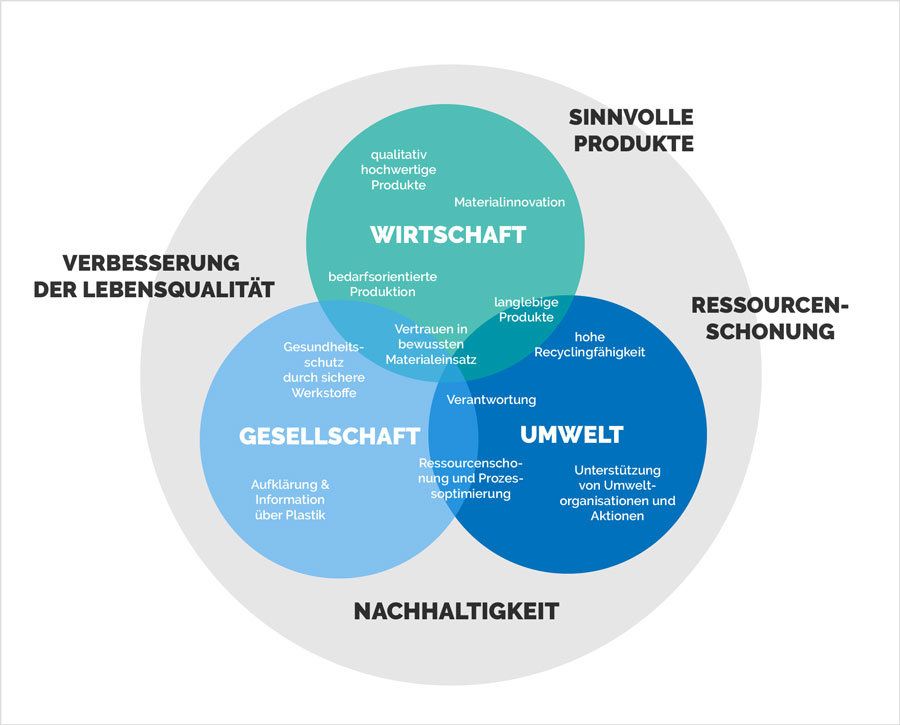Vision and Mission
Plastic reduction meets consumer protection – independent, solution-oriented and credible
Plastic pollution has reached vast proportions. By now, plastic residue and tiny plastic particles can be detected in food, water and the ground. The consequences for the environment are fatal – animals and plants are dying and our health is suffering. There is no doubt that we have to cut the use of plastic and rethink synthetic materials in general. At flustix, we believe that avoiding plastics has to become a focus of corporate CSR-strategies.
Our vision is a world in which we protect nature effectively and use resources responsibly. flustix is dedicated to plastic reduction and the avoidance of plastic waste. We support the responsible use of fossil fuels. We want to respond to consumer demand for less plastic packaging. We also provide information and education about the dangers of plastic overuse. We work in close collaboration with environmental organisations and actively support regulations within plastic production. We support environmental organisations, research and educational advertising. The topic is widely discussed in the media, politics and society in general. It is becoming increasingly challenging for corporations and the market to translate this new quest for sustainability into corporate governance. Consumers are more aware than ever, requesting plastic-free alternatives and greater transparency in the market.

Unsere Mission ist ein sinnvoller Einsatz von Kunststoffen: Vermeiden steht vor verwerten!
flustix as an organisation does not aim to demonise synthetics in general. We believe plastic is a valuable resource which should be used as little as possible. Synthetic materials are indispensable in the medical, transport and security sectors. That is why we have dedicated our work to reducing consumer plastics. To this end, we support environmental organisations, research and educational advertising. The topic is widely discussed in the media, politics and society in general. It is becoming increasingly challenging for corporations and the market to translate this new quest for sustainability into corporate governance. Consumers are more aware than ever, requesting plastic-free alternatives and greater transparency in the market.

flustix offers a viable solution
Our product seal is more than just reliable. Our austere chemical testing process of items by the indepentant laboratory WESSLING provides waterproof credibility. Fact is: only 40% of plastic packaging is actually being recycled. Real recycling rates are continously stagnating because the majority of 60% of packaging is being recycled through so called “energy recovery” – which means: plastic is being burned instead of reused.We have to cut the production of single-use plastic and accomodate customer’s quests for less synthetics. We need to create a constructive exchange between corporations and consumers, which protects the environment and translates policies and regulations. This is what flustix stands for.
Proactive in environmental protection
flustix not only protects consumers with its trustmark, but also the environment. Because our daily purchasing decisions can make a contribution to our future. Even if plastic sometimes seems convenient, the price we and the environment have to pay for a coffee-to-go cup or a microplastic peeling is too high.
Plastic ends up in the environment…
…and does not rot there, but becomes a danger to marine life, the soil and nature as a whole. Over time, plastic breaks down into small pieces – and plastic particles are toxic the smaller they get. Their surface area increases so that more toxins can adhere to the particles. As a result, these toxins end up in animal and human organisms through food, water and cosmetics. That is why plastic avoidance comes before plastic recycling.
Incineration of plastic is disguised as recycling
The fact is: Only a maximum of 40% of plastic packaging (“yellow bag”) is actually recycled. The rates have been stagnating for years. Almost 60% of the approximately six million tonnes of plastic waste are energetically recycled in waste incineration plants. That means: burned. Our goal is to avoid plastic in the consumer sector. Avoidance comes before recycling. Reuse before incineration.
 English
English Deutsch
Deutsch




